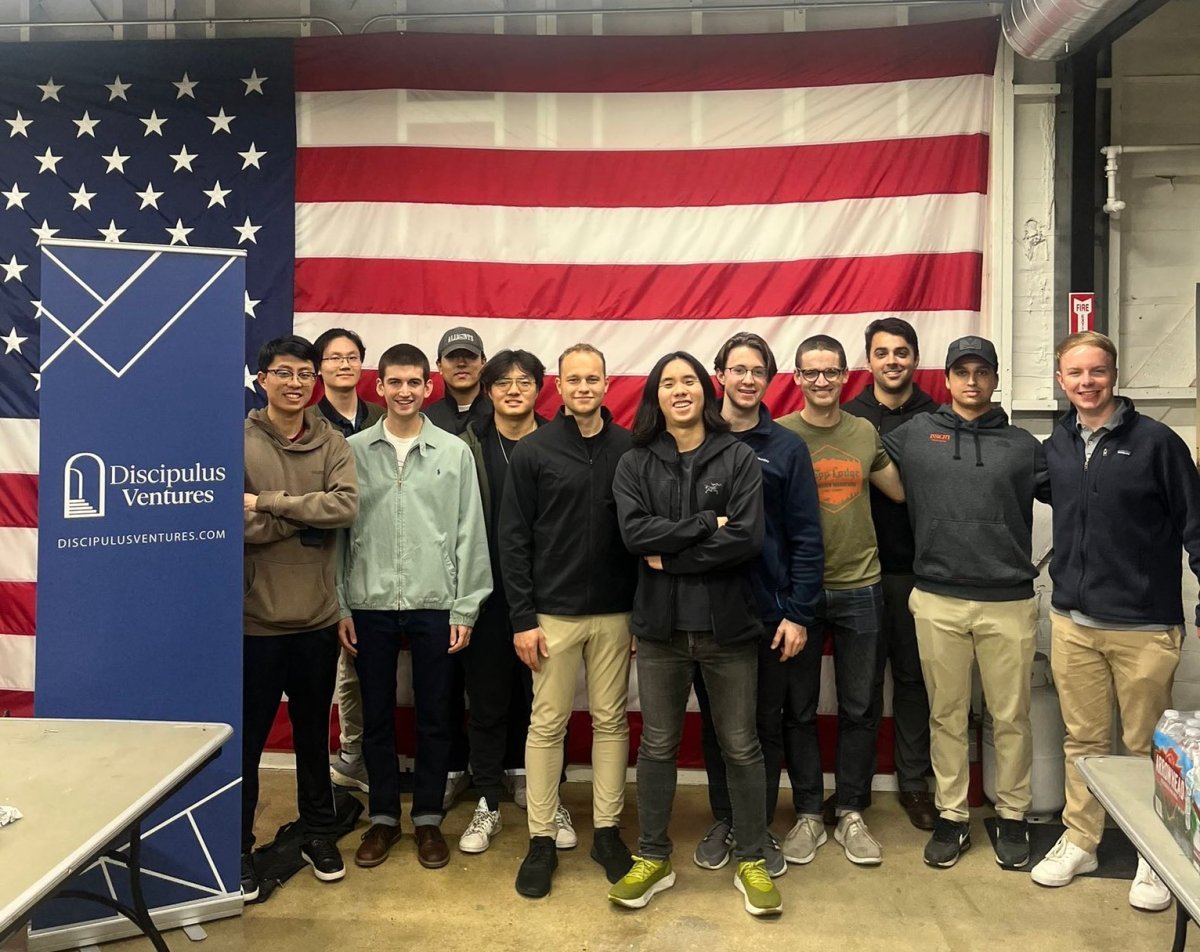Scores of accelerator programs run every year with the aim of identifying and cultivating founders in the earliest stages of building a company. Only a fraction seek out founders who are explicitly aligned with some set of values – let alone classically conservative values like family, patriotism and faith.
“Discipulus Ventures, which kicked off its first 10-person cohort yesterday, is a singular exception. The mentorship program for young founders is interested in bringing together a rather idiosyncratic type of person, at least in tech: those with the idealism of Plato and the rationalism of Aristotle, with a strong drive to revive a Norman Rockwell–esque Americana.”
Instead of conforming to the popular trend of B2B SaaS companies, the cohort of Discipulus Ventures will all be working on problems related to hard tech, defense, or industry – what is often referred to as “American Dynamism.”
The program’s website is clear about this, with its call to student founders who have “a strict devotion to truth and goodness” and whose vision of the future combines “their entrepreneurship, personal virtue, and obligation to our country.”
This emphasis on values comes from a strong belief held by the program’s three founders that young people are not tackling some of the most pressing issues facing the nation – such as reshoring manufacturing or providing clean energy to the electricity grid – because their values are no longer driving them towards mission-driven companies.
In a recent interview, one of Discipulus’ founders, Jakob Diepenbrock, highlighted a survey conducted by the Wall Street Journal and the nonpartisan research organization NORC. The poll showed a sharp decline in values like patriotism, religion, and having children among Americans since the late 1990s. However, during the same period, the pursuit of wealth increased.
“A lot of people were starting companies; it wasn’t for the right reasons, we realized,” he said. “It’s kind of just a popular thing to do today. You go to school and you start some social media company or some ‘Uber for X’-type company, because that’s the popular thing to do, that’s what everybody else is doing.”
Diepenbrock and his co-founders – Isaac Yi, Discipulus’s COO, and William Pan, the entrepreneur in residence – witnessed this trend among students at top universities, where entrepreneurship was seen as a means to an end: making quick cash or fitting in with peers. (According to his LinkedIn, Diepenbrock himself only graduated from high school in 2022.)
“The issue is compounded by a more general constriction in the types of thinking and speaking that take place on university campuses: Essentially, students are becoming more afraid to say what they think, let alone voice what deeply matters to them.”
“You can’t say what matters, you can’t say what you think is true, and that’s obviously not going to be good if you want to solve these problems,” Diepenbrock explained. “If you can’t even talk about them, you can’t solve them.”
Discipulus was created one year ago as a response to this observation. The average day during the cohort, which runs from March 25-29, focuses on community building, talks, and opportunities to work with a mentor. The day starts bright and early with a 6 a.m. gym workout, followed by sessions with mentors such as Katherine Boyle from a16z, Josh Manchester from Champion Hill, Michael Gibson from 1517 Fund, and Augustus Doricko from terraforming company Rainmaker. Participants are also given ample time to work on their projects. The week culminates with a demo day in front of a group of investors.
“The average or median [age] is going to be probably 21, 22 years old, doesn’t really have a network, knows something about raising money, something about go to market — very sharp, but certainly hasn’t done it before, and there’s just tons that they can soak up from each other, just as much from advisors who are helping out,” Manchester said in a recent interview. “They gain the network, they gain deeper insight into their own project and whether they should continue to pursue it or pivot to something else.”
This program is taking place in El Segundo, California, a city just southwest of Los Angeles known for being home to major aerospace companies like Boeing and Northrop Grumman. In recent months, El Segundo has gained a reputation as a hub for a new type of hard tech founder – one very much like the type Discipulus is trying to attract. The city’s scene became more defined in February, when 20-year-old Rasmus Dey Meyer organized a defense tech hackathon there. For a short time, at least, the social media site X escaped the grips of “e/acc” (a movement advocating for accelerated technological progress on artificial intelligence) and was taken over by “🇺🇸/acc” instead.
However, Discipulus was created long before the El Segundo scene gained online attention. The program appears to be harnessing the energy of the area – or perhaps more accurately, seeking to cultivate it.
In some ways, Discipulus may seem similar to other hard tech events – it is predominantly male and features a large American flag hanging from the ceiling to leave no question about the location. However, upon closer observation, significant differences emerge. For example, some mentors, such as Joshua Steinman from Galvanick, bring their young children with them to their talks. In February, when Discipulus mentor and Valar Atomics founder Isaiah Taylor brought his daughter to the hackathon, he too was advocating for a pro-natalist stance – and he made no apologies for it.








